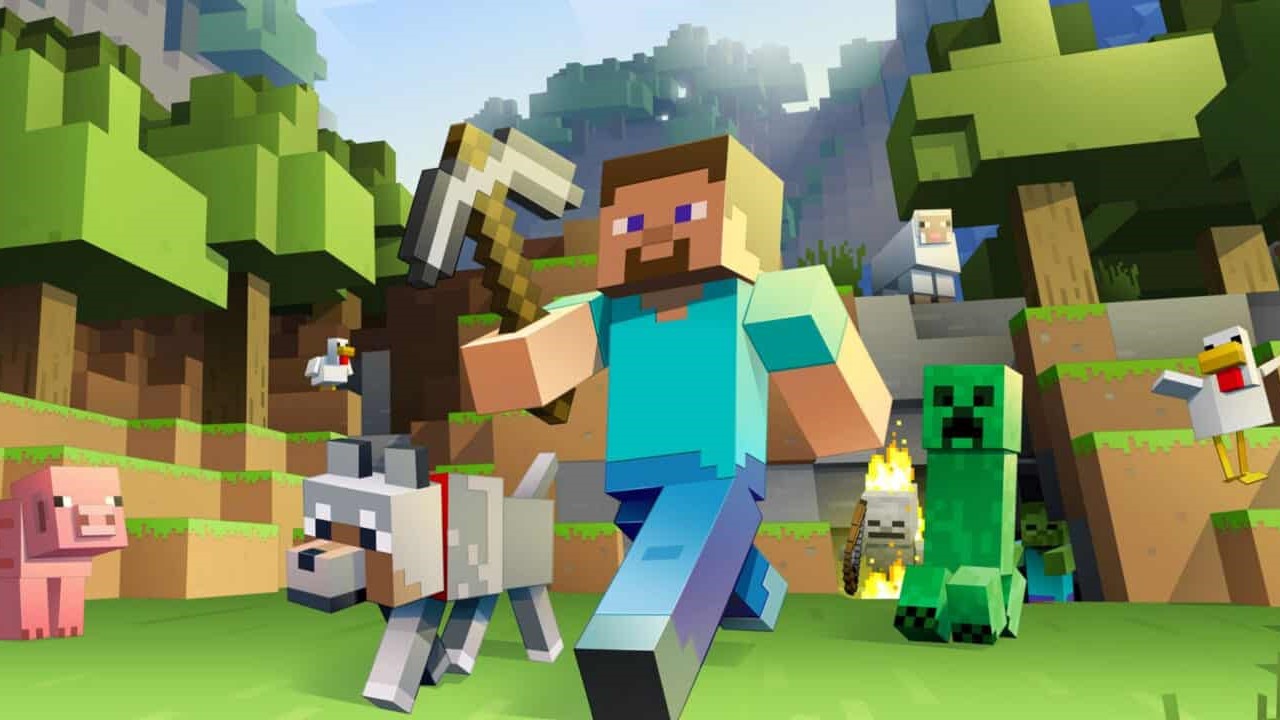Trending
Opinion: How will Project 2025 impact game developers?
The Heritage Foundation's manifesto for the possible next administration could do great harm to many, including large portions of the game development community.
The original creator of Minecraft's End Song poem is making it free for everyone and anyone to use.

Writer Julian Gough announced on Twitter that he's made Minecraft's famous End Poem a part of the public domain. The poem is famously considered the sole piece of written narrative in Mojang's original survival crafting game, and Gough never signed away the poem's rights when Minecraft was acquired by Microsoft in 2014.
"For various reasons, never signed a contract giving away any rights to my story. They are all retained by me," wrote Gough on Twitter. "So Microsoft have never owned the ending to Minecraft. I own it. And from today on, I’m letting anybody play with it."
As Gough explained on his Substack, he was recommended to original Minecraft co-designer Markus "Notch" Persson as a potential candidate to write something for the game in 2011. The result is the End Poem, an 8-minute text scroll that players see after killing the Ender Dragon, and effectively serves as the ending to the story of Minecraft.
While writing the ending, Gough was also talking with Mojang CEO Carl Manneh about being paid for his work. As he explains it, there was a "weird back-and-forth" series of emails with Manneh, which Gough admitted to being confused on. "Carl was indeed Markus’s friend, but that didn’t automatically make him my friend."
After receiving €20,000 (or a little over $21,000) in payment from Manneh, Gough admitted to flat out refusing to sign a contract that would've allowed for Mojang to have permanent rights to the End Song.
As far as other parts of the pre-contract deal were concerned, such as "massive exposure to the Minecraft community," Gough those benefits never manifested from either Manneh or Persson.
Come August 2014, a month before Microsoft acquired Minecraft, Gough was sent a second contract by Manneh to sign away the rights to the End Song. That contract also was never signed, despite repeated insistences from Persson, Manneh, and eventually Microsoft.
"There are no bad guys in this story. Do not hassle Markus, or Carl (or even Microsoft) about this," Gough wrote on his Twitter and Substack. To him, the other parties were "simply obeying the rules of capitalism, the rules so many of us have internalized as though they are natural law."
In making the End Song public domain, Gough wrote that he's "putting it in the hands of the universe", who he argues was the real contributor to the poem's existence. Beyond that, his only real plug is for donations to his Paypal.
"Nobody owns it, and we all own it. Which is to say, it lives outside of that way of looking at art."
As far as Microsoft is concerned, Gough reaffirmed that the Xbox maker legally cannot stop anyone from using the poem as they see fit. Moreover, he requested that the company "just keep sharing my story with the world."
"Anyone can now play with it. Have fun."
You May Also Like